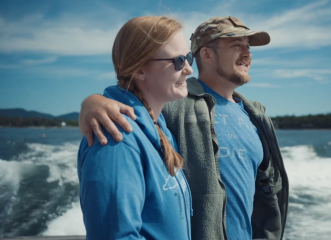An Army Infantryman’s Journey to Recovery
3-minute read
An Army Infantryman’s Journey to Recovery
3-minute read
“Hell on wheels — the type of stuff people write books about.”
That’s how Tony describes his first combat tour. As an infantryman in the U.S. Army, he experienced it all: Heavy fire. Loss of life. Close calls on his own life.
Tony couldn’t shake the difficult memories during his service or even after he returned home. “I drank before service. I drank during service,” he says. “But I really started to drink after my first tour. … I used it as an escape.”
The challenges persisted as he tried to get used to civilian life.
“Transitioning out — that was a nightmare,” Tony says. For seven years in the military, he lived with a regimented routine. He was given direction on where to go; what to eat; what uniform to wear. When he left the Army, he thought, “What do I do now?”
His drinking reached a breaking point after he was charged with drunk driving on St. Patrick’s Day. His wife, Kacie, gave him an ultimatum to get sober. “If anything ever happens again,” Tony remembers thinking, “I’m out.”
It was the wake-up call that he needed. Tony went to his local Vet Center, where he started counseling, was diagnosed with PSTD, and went through cognitive behavioral therapy (CBT).
“[CBT is] about identifying the ways the trauma has made you think differently in an irrational sense. It’s very intense. There’s homework involved,” Tony says. “And you have to relive everything, but it really does help.”
Since Tony got treatment, Kacie says the difference in her husband is like night and day. Before, it was tough getting him out of the house to go to a movie. Now they’re back to doing the things they love, like spending time outdoors. Tony recently accomplished the biggest challenge he could think of — hiking the entire Appalachian Trail.
“There’s a huge change. All the best parts of him have come out even better,” says Kacie. “At some point, bulbs started to light up for him. He became so relaxed, go-with-the-flow, and easygoing. … I’ve told him many times how proud I am of him.”

